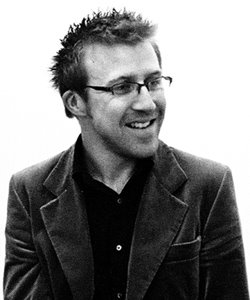
Friday 14 October 2011 7.30pm
Lincoln Performing Arts Centre
www.lpac.co.uk
Thursday 1 September 2011 7.30pm
Hull Truck Theatre
www.hulltruck.co.uk
Friday 8 July - Sunday 10 July 2011 7.45pm
Southbank Centre, London
www.southbankcentre.co.uk
Friday 1 April 2011 8pm
The Carriageworks, Leeds
www.carriageworkstheatre.org.uk
Tuesday 30 November 2010 8pm
Lincoln Drill Hall
www.lincolndrillhall.com
Thursday 11 November 2010 8.30pm
mac, Birmingham
www.macarts.co.uk
Friday 1 October 2010 8pm
Lakeside Arts Centre, Nottingham
www.lakesidearts.org.uk
Thursday 4 & Friday 5 March 2010 8pm
SPRINT Festival, Camden People's Theatre, London
www.cptheatre.co.uk
Friday 26 February 2010 8pm
The Junction, Cambridge
www.junction.co.uk
Wednesday 17 February 2010 2pm
The Playroom, Nottingham Playhouse
www.nottinghamplayhouse.co.uk
Wednesday 3 February 2010 7.30pm
University of Chester
www.chester.ac.uk
Thursday 3 December 2009 7.30pm
The Basement, Brighton
www.thebasement.uk.com
Friday 20 November 2009 8pm
Double bill with Kings of England
greenroom, Manchester
www.greenroomarts.org
Monday 9 November 2009 8pm
Double bill with Kings of England
Nuffield Theatre, Lancaster
www.nuffieldtheatre.com
Friday 30 October 2009 7.30pm
Arnolfini, Bristol
www.arnolfini.org.uk
Thursday 8 October 2009 8pm
Colchester Arts Centre
www.colchesterartscentre.com
Monday 24 August – Saturday 29 August 2009 12pm (Midday)
Theatre Workshop Scotland, Edinburgh
www.theatre-workshop.com
Saturday 18 July 2009 8pm
Déda, Derby
www.deda.uk.com
Tuesday 26 / Wednesday 27 May 2009 7.30pm
BURST Festival, Battersea Arts Centre, London
www.bac.org.uk
Thursday 12 February 2009 1.30pm / 7.30pm
The Point, Eastleigh
www.thepoint-online.co.uk
Tuesday 24 February 2009 7.30pm
Alsager Arts Centre
www.alsagerartscentre.org.uk
Friday 5 December 2008 7.30pm
Saturday 6 December 2008 7.30pm
Theater Frascati, Amsterdam
www.frascati.nl
Thursday 23 October 2008 7.30 pm
Leeds Met Studio Theatre
www.leedsmet.ac.uk/arts
